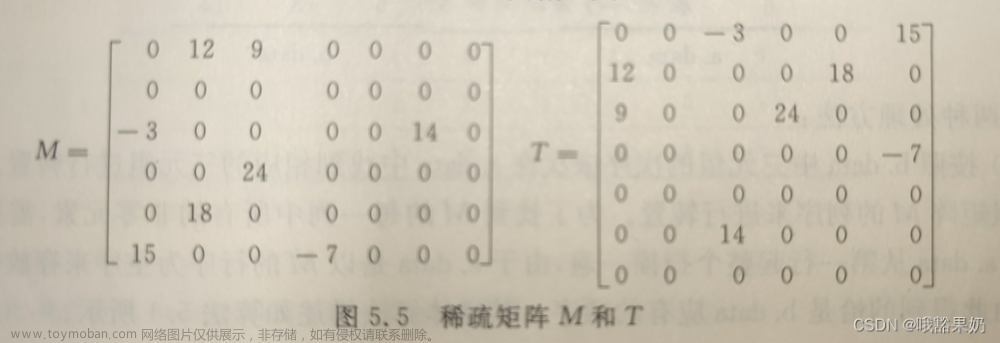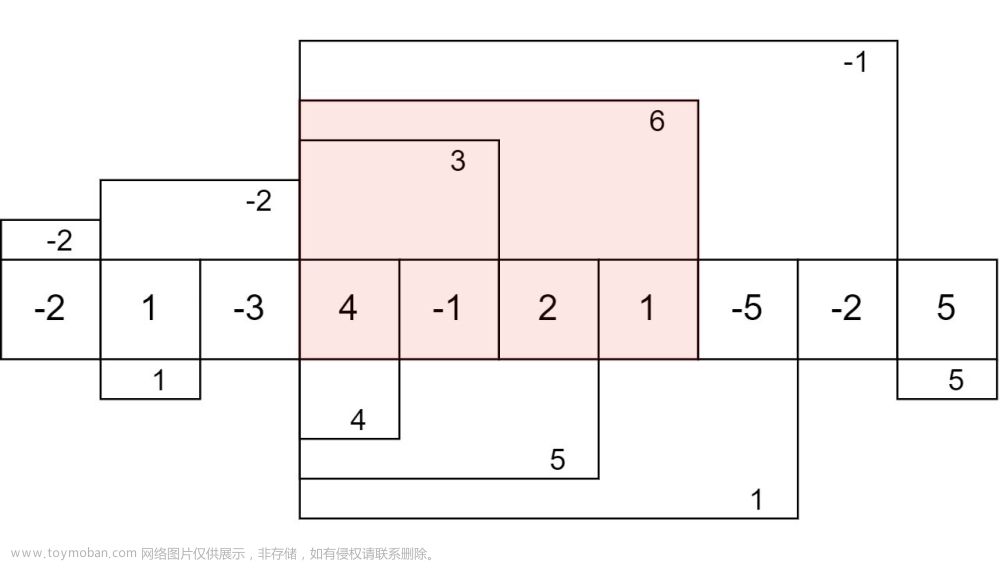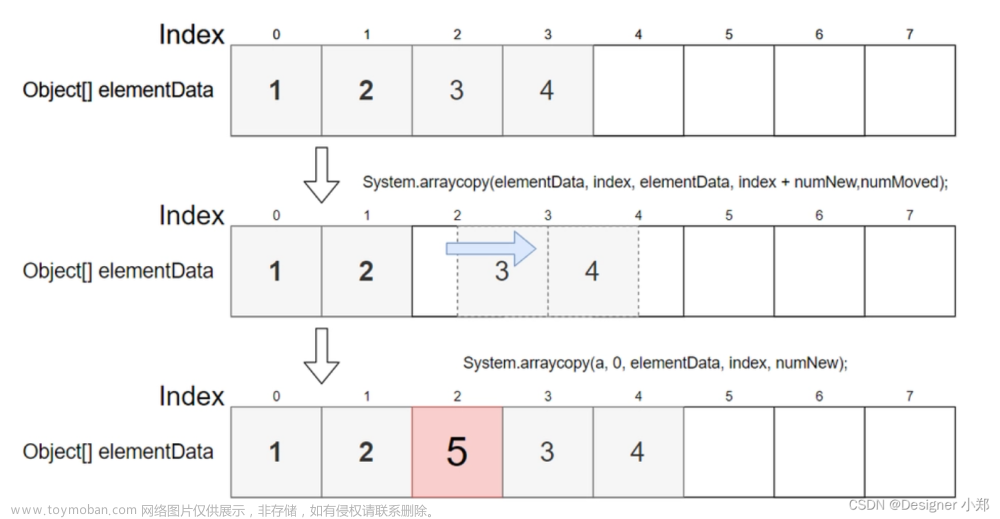C++自学精简教程 目录(必读)
该 Vector 版本特点
这里的版本主要是使用模板实现、支持随机访问迭代器,支持std::sort等所有STL算法。(本文对随机迭代器的支持参考了 复旦大学 大一公共基础课C++语言的一次作业)
随机访问迭代器的实现主要是继承std::iterator<std::random_access_iterator_tag, T>来实现的。
随机访问迭代器最牛逼的两个接口是:
friend iterator operator+(const iterator& lhs, size_t n);
friend iterator operator-(const iterator& lhs, size_t n);
问题解答
1 为何下面代码中的iterator是struct而不是class?文章来源:https://www.toymoban.com/news/detail-685353.html
答:参考struct与class文章来源地址https://www.toymoban.com/news/detail-685353.html
完整代码
#include <iostream>
#include <algorithm>
#include <iostream>
#include <cassert>
#include <initializer_list>
// >>>>>>>>>>>>> do not care the code about memory leak checking. begin <<<<<<<<<<<<<<<
#include <iostream>
#include <cassert>
using namespace std;
struct MemoryNode{
void* ptr = 0;
bool m_released = false;
size_t byte_count = 0;
char file[100] = { 0 };
int line = -1;
bool is_array = false;
MemoryNode* next = nullptr;
};
struct MemoryList{
~MemoryList(){
bool exist_leak = false;
auto temp = head.next;
while (temp){
if (temp->m_released == false){
cout << "memory leak " << temp->byte_count << " byte(s) !!!" << endl;
exist_leak = true;
}
temp = temp->next;
}
if (!exist_leak){
cout << "OK good job ! No memory leak." << endl;
}
}
static MemoryNode* C_NewNode(void* ptr, size_t size, const char* file, int line, bool is_array){
auto pnode = (MemoryNode*)malloc(sizeof(MemoryNode));
pnode->ptr = ptr;
pnode->m_released = false;
pnode->byte_count = size;
for (char* p = pnode->file; *file != '\0'; p++, file++) {*p = *file;}
pnode->line = line;
pnode->is_array = is_array;
pnode->next = nullptr;
return pnode;
}
void push_back(MemoryNode* pnode){
if (tail == nullptr){
head.next = tail = pnode;
}else{
tail->next = pnode;
tail = tail->next;
}
++m_size;
}
MemoryNode* find(void* ptr){
auto temp = head.next;
while (temp){
if (temp->ptr == ptr){
return temp;
}
temp = temp->next;
}
return nullptr;
}
private:
int m_size = 0;
MemoryNode head;
MemoryNode* tail = nullptr;
};
static MemoryList g_MemoryList;
void* operator new(size_t size, char const* file, int line){
void* ptr = malloc(size);
auto pnode = MemoryList::C_NewNode(ptr, size, file, line, false);
g_MemoryList.push_back(pnode);
return ptr;
}
void* operator new[](std::size_t size, char const* file, int line){
void* ptr = malloc(size);
auto pnode = MemoryList::C_NewNode(ptr, size, file, line, true);
g_MemoryList.push_back(pnode);
return ptr;
}
void operator delete(void* ptr) noexcept{
if (ptr == nullptr)
{
cout << "can not delete nullptr !!!" << endl;
assert(false);
}
auto node = g_MemoryList.find(ptr);
if (node == nullptr){
cout << "you want to free memory which is not allocated from new !!!" << endl;
assert(false);
}
else
{
if (node->is_array){
cout << "momory allocated at line " << node->line << ", you want to free memory by delete not delete[] which is allocatd from new[] !!!" << endl;
assert(false);
}
if (node->m_released){
cout << "momory allocated at line " << node->line << ", you want to free one memory twice !!!" << endl;
assert(false);
}
node->m_released = true;
}
}
void operator delete[](void* ptr) noexcept{
if (ptr == nullptr)
{
cout << "can not delete nullptr !!!" << endl;
assert(false);
}
auto node = g_MemoryList.find(ptr);
if (node == nullptr){
cout << "you want to free memory which is not allocated from new !!!" << endl;
assert(false);
}
else{
if (!node->is_array){
cout << "momory allocated at line " << node->line << ", you want to free memory by delete[] not delete which is allocatd from new !!!" << endl;
assert(false);
}
if (node->m_released){
cout << "momory allocated at line " << node->line << ", you want to free one memory twice !!!" << endl;
assert(false);
}
node->m_released = true;
}
}
void operator delete(void* pMem, const char* pszFilename, int nLine){ //msvc need
cout << (int*)pMem << pszFilename << nLine << endl;
free(pMem);
assert(false);
}
void operator delete[](void* pMem, const char* pszFilename, int nLine){ //msvc need
cout << (int*)pMem << pszFilename << nLine << endl;
free(pMem);
assert(false);
}
void operator delete(void*, std::size_t)//Ubuntu need
{
assert(false);
}
//void operator delete[](void*, std::size_t)//Ubuntu need
//{
// assert(false);
//}
#define new new(__FILE__, __LINE__)
void check_do(bool b, int line = __LINE__) { if (b) { cout << "line:" << line << " Pass" << endl; } else { cout << "line:" << line << " Ohh! not passed!!!!!!!!!!!!!!!!!!!!!!!!!!!" << " " << endl; exit(0); } }
#define check(msg) check_do(msg, __LINE__);
// >>>>>>>>>>>>> do not care the code about memory leak checking. begin <<<<<<<<<<<<<<<
template<typename T>
class Vector
{
public:
/* default constructor for the following code :
Vector<int> arr;
*/
Vector(void)
{
cout << "Vector(void)" << endl;
}
Vector(const Vector& from);//copy constructor
Vector(T* start, T* end);//constructor
Vector(int count, T value);//constructor
Vector(std::initializer_list<T> value_array)
{
for (auto& item : value_array)
{
push_back(item);//use push_back to make code simple
}
}
Vector& operator = (const Vector& from);// deep copy please
bool operator==(const Vector& other) const // the same length and every element is the samae
{
//(1) your code . you have to modify the following code
return other.m_data[0] == this->m_data[0];
}
bool operator!=(const Vector& other) const// use operator == for this function
{
return !(*this == other);
}
~Vector();//destructor
public:
int size(void) const;
bool empty(void) const;
T& operator[] (int n) const;
T& operator[] (int n);
void push_back(const T& val);
void clear(void);
private:
void deep_copy_from(const Vector<T>& from);
public:
struct iterator : std::iterator<std::random_access_iterator_tag, T>
{
friend class Vector;
friend bool operator == (const iterator& lhs, const iterator& rhs) { return lhs.m_hold == rhs.m_hold; }
friend bool operator != (const iterator& lhs, const iterator& rhs) { return !(lhs == rhs); }
friend size_t operator - (const iterator& lhs, const iterator& rhs) { return lhs.m_hold - rhs.m_hold; }
friend bool operator < (const iterator& lhs, const iterator& rhs) { return lhs.m_hold < rhs.m_hold; }
friend bool operator > (const iterator& lhs, const iterator& rhs) { return lhs.m_hold > rhs.m_hold; }
friend bool operator <= (const iterator& lhs, const iterator& rhs) { return !(lhs > rhs); }
friend bool operator >= (const iterator& lhs, const iterator& rhs) { return !(lhs < rhs); }
friend iterator operator + (const iterator& lhs, size_t n) { iterator itr; itr.m_hold = lhs.m_hold + n; return itr; }//随机访问迭代器牛逼的地方
friend iterator operator - (const iterator& lhs, size_t n) { iterator itr; itr.m_hold = lhs.m_hold - n; return itr; }//随机访问迭代器牛逼的地方
public:
//for ++itr
iterator& operator++() { m_hold = m_hold + 1; return *this; };
iterator& operator--() { m_hold = m_hold - 1; return *this; };
//for itr++
iterator operator++(int) { iterator itr = *this; m_hold += 1; return itr; }
iterator operator--(int) { iterator itr = *this; m_hold -= 1; return itr; }
T& operator*() const//here must const in C++14
{
return *m_hold;
}
private:
T* m_hold;
};
struct const_iterator : std::iterator<std::random_access_iterator_tag, T>
{
friend class Vector;
friend bool operator == (const const_iterator& lhs, const const_iterator& rhs) { return lhs.m_hold == rhs.m_hold; }
friend bool operator != (const const_iterator& lhs, const const_iterator& rhs) { return !(lhs == rhs); }
friend size_t operator - (const const_iterator& lhs, const const_iterator& rhs) { return lhs.m_hold - rhs.m_hold; }
friend bool operator < (const const_iterator& lhs, const const_iterator& rhs) { return lhs.m_hold < rhs.m_hold; }
friend bool operator > (const const_iterator& lhs, const const_iterator& rhs) { return lhs.m_hold > rhs.m_hold; }
friend bool operator <= (const const_iterator& lhs, const const_iterator& rhs) { return !(lhs > rhs); }
friend bool operator >= (const const_iterator& lhs, const const_iterator& rhs) { return !(lhs < rhs); }
friend const_iterator operator + (const const_iterator& lhs, size_t n) { const_iterator itr; itr.m_hold = lhs.m_hold + n; return itr; }//随机访问迭代器牛逼的地方
friend const_iterator operator - (const const_iterator& lhs, size_t n) { const_iterator itr; itr.m_hold = lhs.m_hold - n; return itr; }//随机访问迭代器牛逼的地方
public:
//for ++itr
const_iterator& operator++() { m_hold = m_hold + 1; return *this; };
const_iterator& operator--() { m_hold = m_hold - 1; return *this; };
//for itr++
const_iterator operator++(int) { const_iterator itr = *this; m_hold += 1; return itr; }
const_iterator operator--(int) { const_iterator itr = *this; m_hold -= 1; return itr; }
const T& operator*() const
{
return *m_hold;
}
private:
T* m_hold;
};
iterator begin() noexcept
{
iterator itr;
itr.m_hold = empty() ? nullptr : &m_data[0];
return itr;
}
const_iterator cbegin() const noexcept;
iterator end() noexcept
{
iterator itr;
itr.m_hold = empty() ? nullptr : &m_data[m_size];
return itr;
}
const_iterator cend() const noexcept;
private:
int m_size = 0;//count element
int m_capacity = 0;//element count + space for push_back
T* m_data = nullptr;//array for hold data
};
template<typename T>
Vector<T>::Vector(T* start, T* end)
{
std::cout << "Vector(T* start, T* end)" << std::endl;
check(start != nullptr && end != nullptr);
m_capacity = m_size = static_cast<int>((end - start));//size_t is enough
check(m_size > 0);
m_data = new T[m_size];
for (int i = 0; i < m_size; i++)
{
m_data[i] = *start++;
}
}
template<typename T>
Vector<T>::Vector(int count, T value)
{
std::cout << "Vector("<<count<<", "<<typeid(T).name()<<")" << std::endl;
if (count <= 0)
{
throw std::runtime_error("size of vector to init must bigger than zero!");
}
m_data = new T[count];
for (int i = 0; i < count; i++)
{
m_data[i] = value;
}
m_capacity = m_size = count;
}
template<typename T>
Vector<T>& Vector<T>::operator=(const Vector<T>& from)
{
std::cout << "Vector::operator=Vector<"<<typeid(T).name()<<">" << std::endl;
if (this == &from)
{
return *this;
}
//release self data first
deep_copy_from(from);
return *this;
}
template<typename T>
Vector<T>::~Vector()
{
//(2) your code
}
template<typename T>
int Vector<T>::size(void) const
{
return m_size;
}
template<typename T>
bool Vector<T>::empty(void) const
{
//(3) your code . you have to modify the following code
return false;
}
template<typename T>
T& Vector<T>::operator[](int n) const
{
//(4) your code . you have to modify the following code
static T t;
n++;//this is wrong!!!!!
return t;
}
template<typename T>
T& Vector<T>::operator[](int n)
{
//(4) your code . you have to modify the following code
static T t;
n++;//this is wrong!!!!!
return t;
}
template<typename T>
void Vector<T>::push_back(const T & val)
{
//(5) your code
// you have to mind that no space in the first time.
// you can not create space at constructor!
m_data[0] = val;//this is wrong!!!!!
}
template<typename T>
void Vector<T>::clear(void)
{
//(6) your code
}
template<typename T>
void Vector<T>::deep_copy_from(const Vector<T>& from)
{
//(7) your code . you have to modify the following code
this->m_size = from.m_capacity;
}
template<typename T>
Vector<T>::Vector(const Vector& from)
{
//(8) your code . you have to modify the following code
this->m_size = from.m_capacity;
}
template<typename T>
typename Vector<T>::const_iterator Vector<T>::cend() const noexcept
{
const_iterator itr = const_iterator();
//(9) your code
return itr;
}
template<typename T>
typename Vector<T>::const_iterator Vector<T>::cbegin() const noexcept
{
const_iterator itr = const_iterator();
//(10) your code
return itr;
}
template<typename T>
void print(const Vector<T>& v, const char* msg)
{
std::cout << "The contents of " << msg << " are:";
for (int i = 0; i < v.size(); ++i)
{
std::cout << ' ' << v[i];
}
std::cout << '\n';
}
template<typename T>
void print_itr(Vector<T>& v, const char* msg)
{
std::cout << "The contents of " << msg << " are:";
for (auto itr = v.begin(); itr != v.end(); ++itr)
{
std::cout << ' ' << *itr;
}
std::cout << '\n';
}
template<typename T>
void print_const_itr(const Vector<T>& v, const char* msg)
{
std::cout << "The contents of " << msg << " are:";
for (auto itr = v.cbegin(); itr != v.cend(); ++itr)
{
std::cout << ' ' << *itr;
}
std::cout << '\n';
}
void test_vector_vector(void)
{
Vector<Vector<char>> matrix(1, Vector<char>(1, 'c'));
char str[100] = { 0 };
int index = 0;
for (auto& item : matrix)
{
for (auto& c : item)
{
str[index++] = c;
}
}
check(index == 1);
for (int j = 0; j < 1; j++)
{
assert(str[j] == 'c');
}
}
int main()
{
Vector<int> a;
Vector<int> first; // empty vector of ints
check(first.size() == 0);
check(first.empty() == true);
Vector<int> second(4, 100); // four ints with value 100
check(second.empty() == false);
check(second.size() == 4);
check(*second.begin() == 100);
Vector<int> fourth(second); // a copy of third
check(fourth.size() == second.size());
check(fourth[0] == 100);
check(fourth[1] == 100);
check(fourth[2] == 100);
check(fourth[3] == 100);
int myints[] = { 16,2,77,29 };
Vector<int> fifth(myints, myints + sizeof(myints) / sizeof(int));
check(fifth.empty() == false);
check(fifth[0] == 16);
check(fifth[3] == 29);
check(fifth.size() == sizeof(myints) / sizeof(int));
print(fifth, "fifth");//The contents of fifth are:16 2 77 29
fifth.push_back(30);
check(fifth[4] == 30);
check(fifth.size() == 5);
print(fifth, "fifth");//The contents of fifth are:16 2 77 29 30
check(fifth.size() == sizeof(myints) / sizeof(int) + 1);
first = fifth = fifth;
print(first, "first");//The contents of first are:16 2 77 29 30
check(first.empty() == false && first.size() == fifth.size());
print_itr(fifth, "fifth");//The contents of fifth are:16 2 77 29 30
print_const_itr(fifth, "fifth");//The contents of fifth are:16 2 77 29 30
std::sort(fifth.begin(), fifth.end());
{
Vector<int> t{2, 16, 29, 30, 77};
check(fifth == t);
}
std::cout << "fifith after sort:" << std::endl;
print_const_itr(fifth, "fifth");//The contents of fifth are:16 2 77 29 30
Vector<int> a1(myints, myints + sizeof(myints) / sizeof(int));
{
Vector<int> b(a1);
b.push_back(2);
check(b[4] == 2);
auto result = (b == Vector<int>{ 16, 2, 77, 29, 2});
check(result);
//iterator
{
check(b.begin() + b.size() == b.end());
auto begin = b.begin();
auto itr = b.begin() + 1;
check(*begin == 16);
check(*itr == 2);
}
//const iterator
{
check(b.cbegin() + b.size() == b.cend());
auto begin = b.cbegin();
auto itr = b.cbegin() + 1;
check(*begin == 16);
check(*itr == 2);
check(++begin == itr);
}
{
Vector<long> aa;
check(aa.begin() == aa.end());
check(aa.cbegin() == aa.cend());
}
}
{
Vector<int> b{ 1,3,5,7 };
b.push_back(9);
}
{
Vector<int> c;
for (auto i : c){std::cout << i << " "; }
c = a1;
for (auto i : c){ std::cout << i << " ";}
std::cout << std::endl;
}
check(a1.size() == sizeof(myints) / sizeof(int));
{
Vector<int> c;
c = fifth;
c[0] = 1;
check(c[0] == 1);
}
{
Vector<int> aa{1, 2, 3};
Vector<int> b{1, 2, 3, 4};
check(aa != b);
auto c = b;
c.push_back(5);
check(c != b);
c = b;
check(c == b);
}
//test char
{
Vector<char> arr(10, 'a' );
char buffer[10] = { 0 };
int index = 0;
for (auto& c : arr)
{
buffer[index++] = c;
}
check(index == 10);
for (int j = 0; j < 10; j++)
{
assert(buffer[j] == arr[j]);
assert(buffer[j] == 'a');
}
}
test_vector_vector();
{
Vector<int> arr1{ 1,1,3 };
Vector<int> arr2{ 2,2,3 };
check(arr1 != arr2);
Vector<int> arr3{ 2,2,3 };
check(arr2 == arr3);
Vector<int> arr4{ 2,2,3, 3 };
check(arr3 != arr4);
check(arr4 != arr3);
}
}预期输出
Vector(void)
Vector(void)
line:494 Pass
line:495 Pass
Vector(4, int)
line:497 Pass
line:498 Pass
line:499 Pass
Vector::deep_copy_from Vector<int>
line:501 Pass
line:502 Pass
line:503 Pass
line:504 Pass
line:505 Pass
Vector(T* start, T* end)
line:287 Pass
line:289 Pass
line:509 Pass
line:510 Pass
line:511 Pass
line:512 Pass
The contents of fifth are: 16 2 77 29
line:515 Pass
line:516 Pass
The contents of fifth are: 16 2 77 29 30
line:518 Pass
Vector::operator=Vector<int>
Vector::operator=Vector<int>
Vector::deep_copy_from Vector<int>
The contents of first are: 16 2 77 29 30
line:521 Pass
The contents of fifth are: 16 2 77 29 30
The contents of fifth are: 16 2 77 29 30
line:527 Pass
fifith after sort:
The contents of fifth are: 2 16 29 30 77
Vector(T* start, T* end)
line:287 Pass
line:289 Pass
Vector::deep_copy_from Vector<int>
line:535 Pass
line:537 Pass
line:541 Pass
line:544 Pass
line:545 Pass
line:549 Pass
line:552 Pass
line:553 Pass
line:554 Pass
Vector(void)
line:558 Pass
line:559 Pass
Vector(void)
Vector::operator=Vector<int>
Vector::deep_copy_from Vector<int>
16 2 77 29
line:573 Pass
Vector(void)
Vector::operator=Vector<int>
Vector::deep_copy_from Vector<int>
line:578 Pass
line:583 Pass
Vector::deep_copy_from Vector<int>
line:586 Pass
Vector::operator=Vector<int>
Vector::deep_copy_from Vector<int>
line:588 Pass
Vector(10, char)
line:599 Pass
Vector(1, char)
Vector(1, class Vector<char>)
Vector(void)
Vector::operator=Vector<char>
Vector::deep_copy_from Vector<char>
line:482 Pass
line:610 Pass
line:612 Pass
line:614 Pass
line:615 Pass
OK good job ! No memory leak.到了这里,关于Vector<T> 动态数组(随机访问迭代器)的文章就介绍完了。如果您还想了解更多内容,请在右上角搜索TOY模板网以前的文章或继续浏览下面的相关文章,希望大家以后多多支持TOY模板网!












